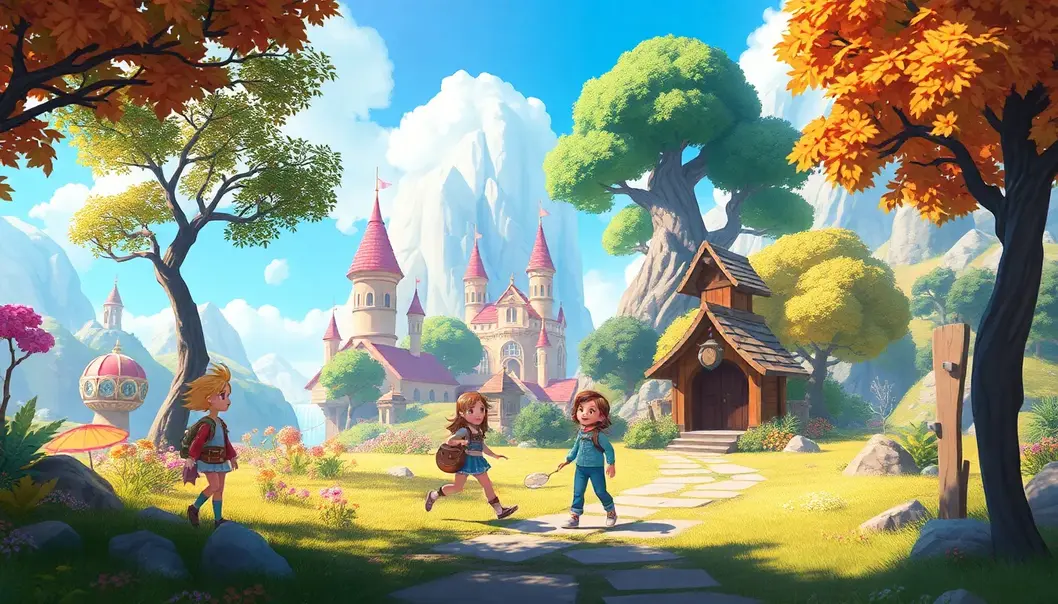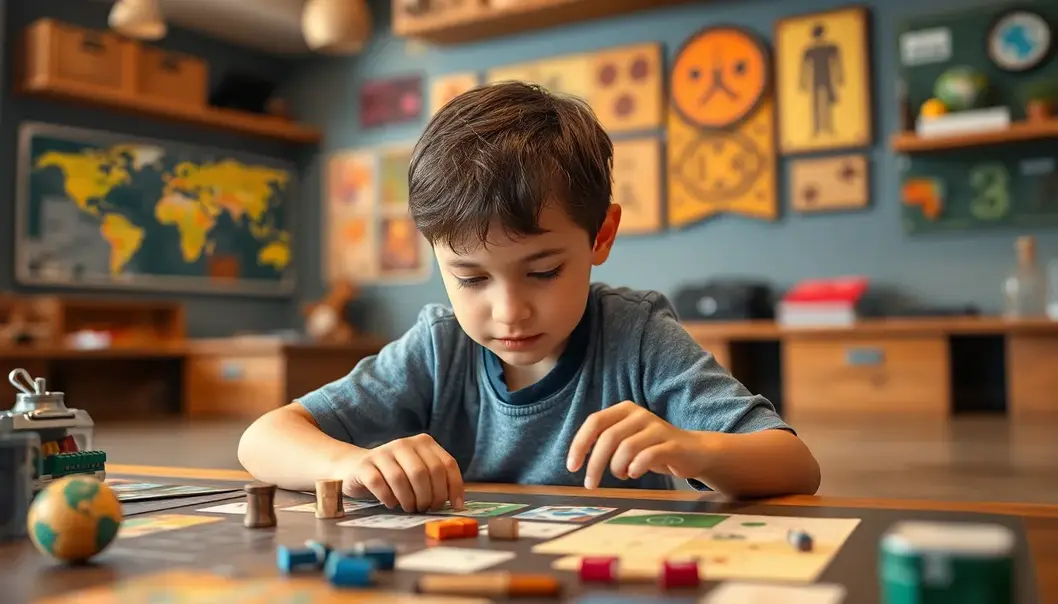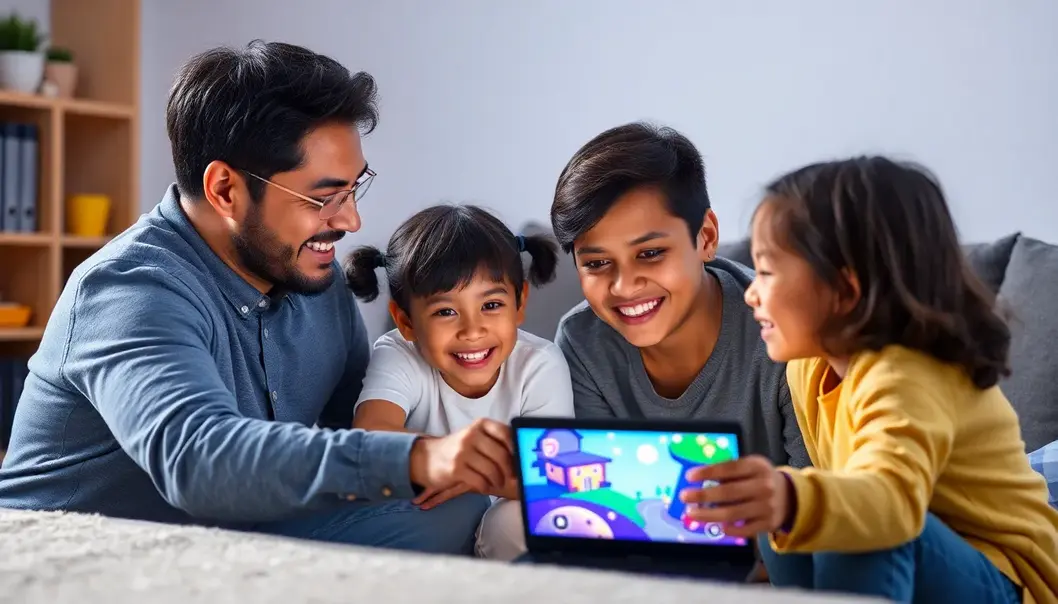Open-world games have captivated players of all ages with their expansive environments and endless possibilities. These games offer children a chance to explore new horizons and develop critical thinking skills, while parents may feel concerned about content suitability and safety. Understanding which games provide both fun and an age-appropriate experience is crucial. Rest assured, this guide identifies top open-world games that balance engaging gameplay with responsible content, ensuring your child enjoys immersive adventures while you maintain peace of mind. Let’s dive into what makes these games the perfect choice for family-friendly entertainment.
Discovering Safe and Engaging Open-World Games

When it comes to selecting open-world games for children, the task isn’t simply about identifying which games are trending. Parents must delve into specific criteria that ensure both safety and an enriching play experience. Here, we explore essential considerations that guide parents towards wise choices.
Balanced Gameplay:
Balanced gameplay is crucial in open-world games, especially for younger audiences. Many games offer expansive environments where players can explore and interact at their own pace. Such games should promote a sense of autonomy, encouraging players to make decisions, learn from consequences, and feel a sense of accomplishment. This autonomy, however, must not come at the cost of overwhelming complexity. Games with intuitive controls and clear objectives allow children to enjoy prolonged engagement without unnecessary frustration.
Age-Appropriate Content:
Ensuring a game is age-appropriate involves more than just adhering to the ratings by established game rating boards. Parents should consider the thematic elements within the game world. Games intended for children should steer clear of inappropriate language, excessive violence, and mature themes. Instead, they should embrace positive values such as kindness, cooperation, and creativity, fostering an inclusive environment where children can thrive.
Positive Themes and Learning Opportunities:
Games crafted with positive themes can serve as powerful tools for imparting valuable life lessons. Open-world games that emphasize teamwork, resilience, and empathy contribute to a child’s socio-emotional development. Parents can prioritize games that encourage exploring diverse cultures, histories, and ecological systems, turning gameplay into an interactive learning experience.
Examples of such games have been lauded not just for their engaging worlds but also for their educational and moral benefits. Many titles are praised for their ability to subtly introduce concepts such as resource management, strategic thinking, and innovation. In addition, games with non-linear storylines and multiple endings challenge children to think critically about their choices and actions.
Community and Parental Reviews:
Checking reviews not just from critics but also from other parents can provide insights into how different games are perceived by audiences with similar concerns. Communities often share feedback about a game’s playability, educational potential, and the nature of its in-game community interactions, which can help parents make informed decisions.
Finding the right open-world game for your child requires time and diligence. By focusing on balanced gameplay, ensuring content appropriateness, and embracing positive themes, parents can unlock immersive play experiences that are both safe and enriching for their children.
The Educational Benefits of Open-World Games

Open-world games are more than just a means of escape; they provide a rich tapestry for learning. These expansive virtual environments cultivate critical thinking, enhance problem-solving abilities, and inspire creativity among children. When children engage with these games, they often encounter complex scenarios requiring strategic planning and decision-making. This nurtures their ability to evaluate situations, anticipate consequences, and formulate solutions, skills essential for real-world problem-solving.
Moreover, open-world games demand a high level of adaptability. Children must constantly adjust to the game’s dynamic environments and evolving challenges. This ongoing need to adapt fosters resilience and teaches flexible thinking, preparing children to face unpredictable situations with confidence. Such experiences also encourage exploration, inviting players to discover new paths and ideas, thereby broadening their horizons and deepening their understanding.
Creativity flourishes within these realms as children are not confined to predestined paths or outcomes. They are free to experiment with different approaches and explore innovative solutions. This freedom enhances their creative faculties, allowing them to express themselves uniquely. Whether building intricate structures, crafting stories within the game’s narrative, or designing aesthetically pleasing virtual environments, these activities pave the way for imaginative thinking and artistic expression.
Parents can leverage these educational benefits by integrating gameplay with learning experiences at home. Discussions about the game’s scenarios can lead to deeper understanding and flashes of inspiration that relate to real-world events or academic subjects. For instance, a game set in ancient civilizations can spark an interest in history, prompting children to research more about the era. Similarly, game-based resource management tasks can illustrate basic economic principles, while environmental themes within a game could inspire ecological awareness.
Some games have been recognized for their educational potential, valued not only for their engaging gameplay but also for contributing positively to a child’s learning. These games challenge players to solve puzzles, make strategic decisions, and learn new skills, making them an effective supplement to traditional educational methods. Parents exploring ways to enrich their children’s education can find suitable allies in these games.
While the virtual worlds of these games can be richly rewarding, it is the bond parents create by engaging with their children in discussing these experiences that elevates their educational potential. By actively participating and showing interest in gameplay, parents not only ensure safe play but also reinforce the learning that occurs in these digital playgrounds.
Final words
By selecting the right open-world games, you provide your child with a safe, engaging, and educational experience. These games not only entertain but also enhance critical life skills, fostering creativity and problem-solving abilities. Keep these considerations in mind to ensure responsible gaming and a harmonious balance between fun and learning.
Ready to dive into safe and engaging worlds with your child? Check out our curated list of family-friendly games and embark on new adventures!
Learn more: https://www.familygamingadventures.com
About us
Family Gaming Adventures offers resources and guides for selecting and enjoying family-friendly video games. Our mission is to help families find games that balance fun and educational benefits, creating memorable shared experiences.

